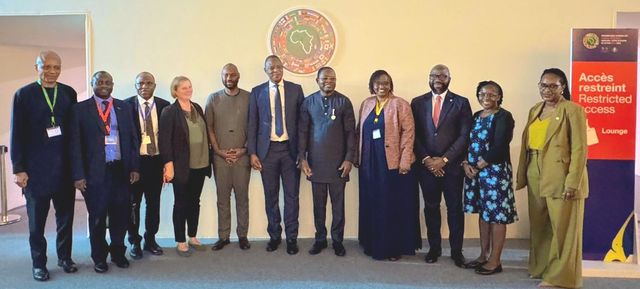Highlights Key Institutional Updates
The FinancialCrimes Commission has released an official communiqué detailing recent institutional updates in Mauritius. The statement emphasizes measures taken to strengthen transparency, ensure compliance with economic regulations, and maintain accountability across both public and private sectors. These updates are intended to reassure stakeholders of the Commission’s proactive role in monitoring economic activities.
The communiqué outlines the latest decisions, initiatives, and actions undertaken by the Commission. These include investigations into irregular economic activities, the introduction of compliance frameworks, and enhanced reporting procedures for institutions under its oversight. By sharing this information publicly, the Commission promotes trust and confidence in the country’s economic system.
Furthermore, the communiqué provides guidance on upcoming institutional policies, aiming to align organizational practices with best standards. This proactive communication allows institutions to anticipate regulatory expectations, thereby facilitating smoother implementation and compliance.
Regulatory Measures
One of the key sections of the Financial Communiqué focuses on regulatory measures recently introduced by the Commission. These measures target improved monitoring of financial transactions, prevention of fraudulent activities, and stricter enforcement of existing laws. Institutions are advised to adopt these measures immediately to ensure alignment with national standards.
Through the communiqué, the Commission highlights its commitment to fostering a secure and transparent financial environment. The regulatory guidelines are designed not only to prevent misconduct but also to support organizations in establishing robust internal controls and governance structures.
Additionally, the communiqué stresses the importance of continuous training and awareness programs for staff within financial institutions. These programs ensure that personnel remain updated on the latest compliance requirements, reducing the risk of non-compliance and reinforcing ethical financial practices.
Stakeholder Engagement
Stakeholder engagement is a central theme of the communiqué. The Financial Crimes Commission encourages collaboration between governmental bodies, financial institutions, and civil society to address financial risks and promote transparency. Regular consultations and updates are emphasized as essential for maintaining accountability and institutional integrity.
Through this engagement, the Commission facilitates open communication channels where stakeholders can report concerns, seek clarification, and provide feedback on policies. This approach ensures that decision-making is inclusive and reflects the perspectives of various actors within the financial ecosystem.
Moreover, the communiqué highlights the role of public awareness campaigns in educating citizens about regulatory processes, reporting mechanisms, and the importance of financial integrity. By involving both institutions and the public, the Commission strengthens the overall culture of accountability in Mauritius.
Strengthening Compliance Frameworks
The Financial Communiqué emphasizes the importance of robust compliance frameworks within institutions. By clearly outlining expectations and standards, the Commission enables organizations to structure internal policies that reduce financial risk and enhance transparency. This guidance supports proactive risk management and strengthens institutional credibility.
Institutions are encouraged to adopt best practices for internal audits, reporting protocols, and governance measures. The communiqué highlights examples of effective compliance models, allowing organizations to benchmark their procedures against recognized standards. This approach ensures that entities remain aligned with national and international regulatory expectations.
For further details on regulatory compliance and financial integrity, the Commission recommends referring to the official guidelines published by the International Monetary Fund (IMF), which provide global perspectives on risk management and institutional oversight.
Promoting Institutional Accountability
Accountability is a central pillar highlighted in the communiqué. The Commission emphasizes that organizations must maintain accurate records, implement transparent decision-making processes, and regularly report operational outcomes. Such measures foster confidence among stakeholders, including investors, partners, and the general public.
Through this communiqué, institutions are reminded of the importance of leadership responsibility and ethical governance. Leaders are encouraged to cultivate a culture of accountability within their organizations, ensuring that all employees understand compliance requirements and operational standards. This culture reduces vulnerabilities and strengthens overall institutional resilience.
Additional resources and institutional updates can be accessed through the platform’s dedicated section on Economic Activity Mauritius, providing context-specific guidance for local organizations.
Risk Mitigation and Monitoring
Risk mitigation and continuous monitoring are key themes of the communiqué. The Commission outlines strategies for identifying potential threats, conducting regular assessments, and implementing corrective measures to prevent financial misconduct. By establishing systematic monitoring protocols, organizations can detect irregularities early and take appropriate action.
The communiqué also details reporting timelines and accountability structures to ensure that institutions respond effectively to identified risks. The proactive approach recommended by the Commission strengthens overall financial governance and reduces exposure to reputational or operational harm.
By following the guidance in the Financial Communiqué, institutions can enhance their operational integrity while supporting Mauritius’ broader objective of a transparent and reliable financial system. The combination of compliance, accountability, and risk management forms the foundation for sustainable institutional performance.
Enhancing Transparency Measures
The Communiqué underscores initiatives to enhance transparency across institutions. By providing clear reporting guidelines and public disclosure requirements, the Commission ensures that stakeholders are well-informed about organizational operations. Transparent practices not only build trust but also facilitate accountability and regulatory compliance.
Institutions are encouraged to adopt digital reporting tools and centralized record-keeping systems. These measures streamline data collection and enhance the accuracy of reports submitted to oversight authorities. Transparency, when systematically implemented, reinforces the integrity of both internal processes and public communication.
Through these initiatives, the communiqué signals the Commission’s commitment to fostering a culture of openness and integrity within Mauritius’ financial sector.
Supporting Policy Implementation
The communiqué also highlights the role of institutions in supporting policy implementation. By aligning operational practices with national financial regulations, organizations contribute to the effectiveness of regulatory frameworks and the achievement of broader economic objectives. Policy adherence ensures that organizations operate within legal boundaries and promote sustainable governance.
The Financial Crimes Commission provides detailed guidance on compliance procedures, including reporting schedules, documentation standards, and risk assessment methodologies. By following these recommendations, institutions can demonstrate proactive engagement with policy requirements, enhancing their credibility and performance.
Ongoing collaboration between regulatory bodies and institutions ensures that policies remain relevant, practical, and adaptable to changing economic conditions.
Encouraging Capacity Building
Capacity building is emphasized as a critical factor in institutional resilience. The communiqué encourages training programs, workshops, and seminars to equip staff with the knowledge and skills necessary to meet compliance expectations. Continuous professional development ensures that personnel can effectively implement and monitor institutional policies.
Startups and established institutions alike benefit from mentorship programs and knowledge-sharing initiatives facilitated by the Commission. These programs foster a culture of learning and adaptability, enabling organizations to respond efficiently to evolving regulatory requirements and financial challenges.
By investing in human capital, the Financial Communiqué ensures that institutions maintain high operational standards while promoting a culture of accountability and integrity.
the Road Ahead
Looking forward, the Financial Communiqué sets the stage for sustained institutional improvement. Through clear guidelines, stakeholder engagement, and capacity-building initiatives, the Commission aims to strengthen the overall financial ecosystem in Mauritius. Institutions are encouraged to adopt innovative compliance strategies and continuously enhance operational transparency.
The communiqué reinforces the notion that proactive governance, adherence to policy, and effective risk management are essential for long-term institutional success. By following the Commission’s guidance, organizations contribute to a secure, transparent, and accountable financial environment.
In conclusion, the Financial Communiqué provides comprehensive updates and guidance for Mauritius’ institutions, emphasizing transparency, accountability, and compliance. By implementing these recommendations, organizations can enhance performance, build stakeholder trust, and support the broader goals of national financial integrity.




